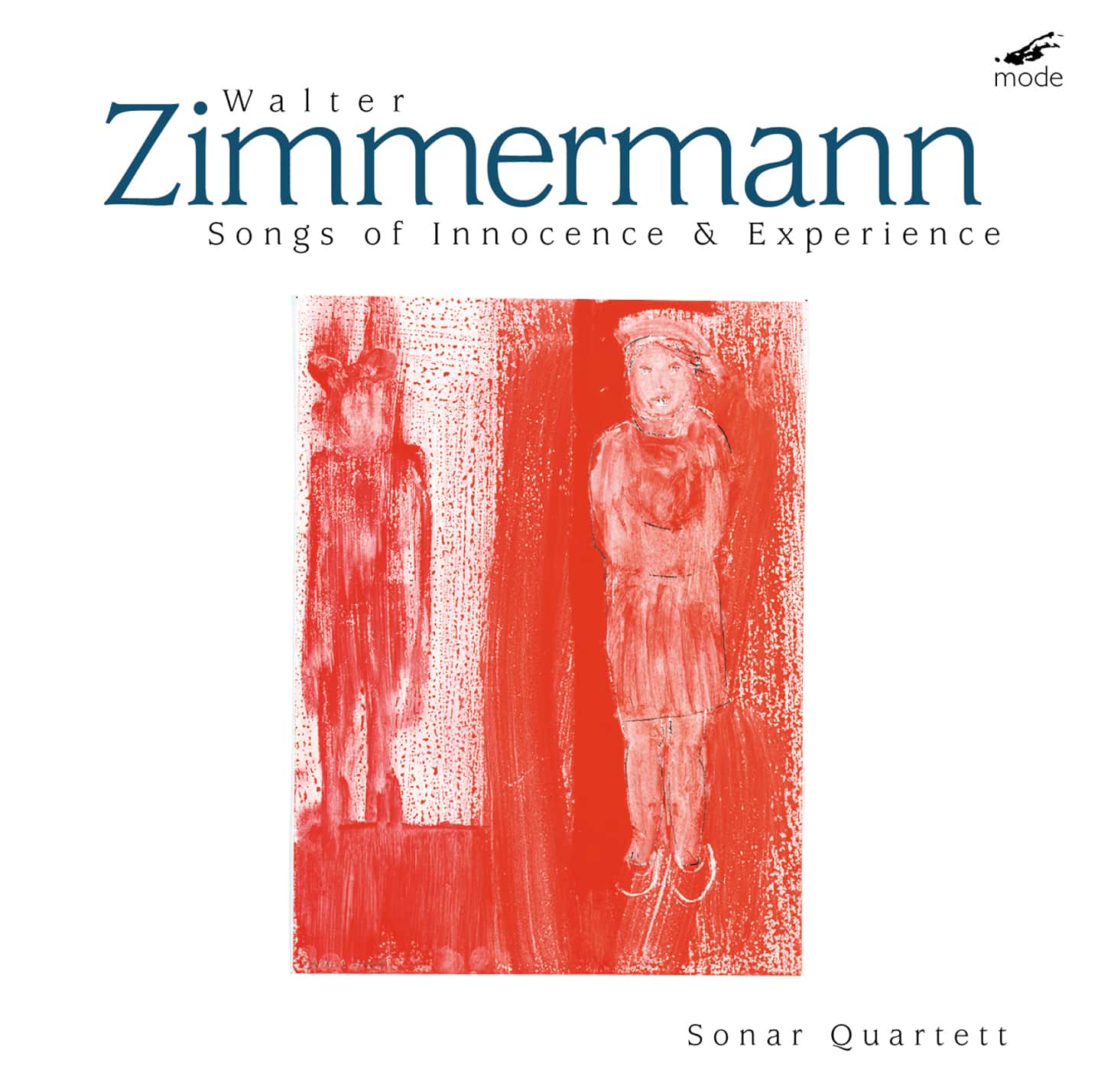10 Fränkische Tänze (1977) 12:56 sublimated for string quartet with drone quartet
Keuper (1980) 6:51 for string quartet
Festina Lente (1987) 26:28 for string quartet
Patientia 10:42
Occasio 2:14
Poenitentia 2:17
Regressus in Infinitum 11:15
Songs of Innocence & Experience (1996/2004)
23 Ritornels for string quartet & tape 22:10
Allen Ginsberg, voice
Die Sorge geht über den Fluß 46:15 for violin solo
Part 1 (1989-91) for Stefan Schädler 17:15
Part 2 (2001) 29:00
Susanne Zapf, violin
Taula/Novo Ben (2003) 15:50 for viola with voice
Taula (text: Roman Llull) 7:04
Novo Ben (text: Biagio Marin) 8:46
Nikolaus Schlierf, viola & voice
10 Fränkische Tänze (1977) 12:06 sublimated for string quartet without drone quartet
The Sonar Quartett
Susanne Zapf & Kirsten Harms, violins
Nikolaus Schlierf, viola
Cosima Gerhardt, cello
This is the first complete recording of Walter Zimmermann’s string quartets.
The 10 Fränkische Tänze, from the project Lokale Musik (Local Music) explore the folk music of Franconia in Germany. They are built on research of old peasant books of dances, some dating back to the early 19th century and the beginning of the notation of folk music. The many dance melodies including waltzes, Schottische [German polka], mazurka, galop etc. are captured, rejected and presented in just intonation, lending them an archaic character. It can be performed with or without a drone, both versions are presented here.
Songs of Innocence & Experience is a composition with twenty ritornellos after William Blake’s cycle of poems Songs of Innocence. The spirit of each poem is condensed and projected onto children songs, which Zimmermann recorded on the streets of Nuremberg. The songs were transcribed with all their intonation inaccuracies and with their repeated phrases which point to both the recollection and forgetting of the melodies. These recordings as well as Allan Ginsberg’s interpretation of Blake’s The Tyger poem are interwoven into the quartet.
Festina Lente explores the phenomena of listening to the fast music within the surface of slow passages and to the slow music within the surface of fast passages.
Die Sorge geht über den Fluss [Care Crosses the River] for solo violin is based on the 220th Fable of Hyginus, from which it takes its title. Zimmermann composed the piece like a diary: “Each day, I composed one line and if that was not the case, a rest with a fermata replaces sound, so that the structure of the diary from January 1, 2000, to April 1, 2000, produces the form alternating between composed and silent portions.”
Taula/Novo Ben, for viola with voice (one performer), is the first of the cycle of works written for instrumentalists who also sing. This project creates a new, extremely demanding discipline. They are not just simple songs, but a performer’s challenging investigations of his/her instrument and his/her voice. At a time of much specialization in new music, this cycle leads back to the basic forms of music making which date back to the troubadours for whom it was natural to accompany their own vocal performances, although their songs were easier.
Composer supervised recordings by Germany’s Sonar Quartett.
Liner notes by Walter Zimmermann and Rainer Pöllmann. Cover art by Nanne Meyer.
A specially priced 2-CD set.

